Cutting energy bills before winter (toolbox)

The upcoming winter will be difficult for many Polish households due to high costs of heat and electricity. In the latest report by Forum Energii, more than 30 concrete measures are listed. They can be implemented easily and at a low (or even none) cost before the heating season. This will reduce bills and improve the country's energy security.
Read More
Cutting energy bills before winter (toolbox)
The upcoming winter will be difficult for many Polish households due to high costs of heat and electricity. In the latest report by Forum Energii, more than 30 concrete measures are listed. They can be implemented easily and at a low (or even none) cost before the heating season. This will reduce bills and improve the country's energy security.

RRP: The bare minimum for over €9bn

With one year delay the national Recovery and Resilience Plan (RRP) is entering Poland. So far, the discussion around the RRP has focused primarily on money. Meanwhile – and this is particularly evident in the area of energy transition – the RRP is an instrument that has mobilised the Polish government to work out the necessary reforms, involving an in-depth analysis of challenges ahead, assessment of specific solutions, and necessary legal changes, all within specific timeframe. Investment support – although crucial – plays a secondary role in accelerating the implementation of reforms.
Read More
RRP: The bare minimum for over €9bn
With one year delay the national Recovery and Resilience Plan (RRP) is entering Poland. So far, the discussion around the RRP has focused primarily on money. Meanwhile – and this is particularly evident in the area of energy transition – the RRP is an instrument that has mobilised the Polish government to work out the necessary reforms, involving an in-depth analysis of challenges ahead, assessment of specific solutions, and necessary legal changes, all within specific timeframe. Investment support – although crucial – plays a secondary role in accelerating the implementation of reforms.

Whom to ask how Poland spends billions from the Modernisation Fund?

The European Union has decided to allocate 2% of the allowances from its emissions trading system (EU-ETS) for support to poorer countries in their energy transition. Since 2021 this money is transferred to Poland, among others. The local operator – the National Fund for Environmental Protection and Water Management – has been distributing the funds without adequate public scrutiny and information. A year after taking charge of the Modernisation Fund, there is no transparent website to adequately inform society and potential applicants on what and how over EUR 11 bn (PLN 50 bn) is to be spent (and a further increase is on the table). This article deals with the consequences of the current flaws in this process and why their removal is so important for Poland.
Read More
Whom to ask how Poland spends billions from the Modernisation Fund?
The European Union has decided to allocate 2% of the allowances from its emissions trading system (EU-ETS) for support to poorer countries in their energy transition. Since 2021 this money is transferred to Poland, among others. The local operator – the National Fund for Environmental Protection and Water Management – has been distributing the funds without adequate public scrutiny and information. A year after taking charge of the Modernisation Fund, there is no transparent website to adequately inform society and potential applicants on what and how over EUR 11 bn (PLN 50 bn) is to be spent (and a further increase is on the table). This article deals with the consequences of the current flaws in this process and why their removal is so important for Poland.

Is the Kremlin turning off the gas tap? Time to exclude gas and coal from households
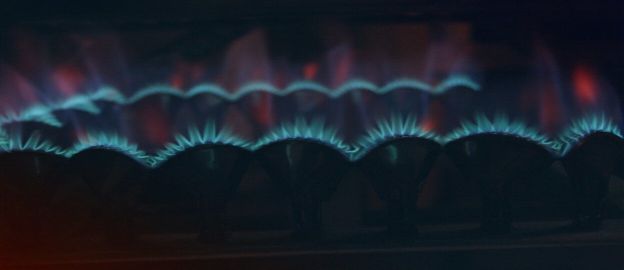
How to prepare households for an energy war with Russia? Gazprom is suspending gas supplies to Poland under the Yamal contract. This is no great surprise. At the end of this year, Poland was going to give up buying Russian gas anyway. Physically, there is unlikely to be a shortage of gas, but Poland is entering a period of high prices, which will limit the use of this raw material. The role of the state should be to wisely support society in smoothly passing through the crisis. Without reducing demand in sectors where it is possible, this will be difficult.
Read More
Is the Kremlin turning off the gas tap? Time to exclude gas and coal from households
How to prepare households for an energy war with Russia? Gazprom is suspending gas supplies to Poland under the Yamal contract. This is no great surprise. At the end of this year, Poland was going to give up buying Russian gas anyway. Physically, there is unlikely to be a shortage of gas, but Poland is entering a period of high prices, which will limit the use of this raw material. The role of the state should be to wisely support society in smoothly passing through the crisis. Without reducing demand in sectors where it is possible, this will be difficult.

Energy transition in Poland | 2022 Edition

On top of the economic slowdown in 2020 caused by the COVID-19 pandemic, 2021 was the next year when the cards dealt unexpected circumstances that diverged from the previous years of stability. In Europe, we experienced an energy crisis marked by sharp spikes in gas prices and CO2 emission costs. The wartime reality of 2022 means even more uncertainty and market volatility with energy security and independence from imported raw materials becoming the most important topics. Poland continues drifting along in the modernisation of the energy sector, as clearly indicated by data collected by Forum Energii in its annual report “Energy Transition in Poland”.
Read More
Energy transition in Poland | 2022 Edition
On top of the economic slowdown in 2020 caused by the COVID-19 pandemic, 2021 was the next year when the cards dealt unexpected circumstances that diverged from the previous years of stability. In Europe, we experienced an energy crisis marked by sharp spikes in gas prices and CO2 emission costs. The wartime reality of 2022 means even more uncertainty and market volatility with energy security and independence from imported raw materials becoming the most important topics. Poland continues drifting along in the modernisation of the energy sector, as clearly indicated by data collected by Forum Energii in its annual report “Energy Transition in Poland”.

Clean heat as an engine for the Polish economy

A new approach to heating is needed in Poland. It is currently a neglected area where the necessary changes and modernisation have been postponed for years. As a result, every winter we have the most polluted air in the European Union and the Polish district heating system is on the verge of collapse. The costs and scale of the investments needed are enormous, but further delays will lead to an even higher prices.
Read More
Clean heat as an engine for the Polish economy
A new approach to heating is needed in Poland. It is currently a neglected area where the necessary changes and modernisation have been postponed for years. As a result, every winter we have the most polluted air in the European Union and the Polish district heating system is on the verge of collapse. The costs and scale of the investments needed are enormous, but further delays will lead to an even higher prices.
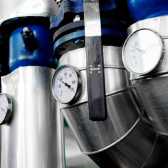
Ukraine's Power System: Peace and War
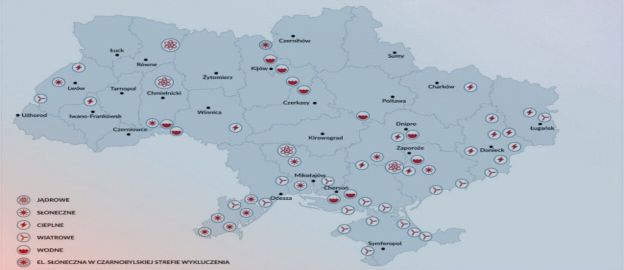
On 16 March, Ukraine was synchronised with the electricity grid of continental Europe, bidding a permanent farewell to the systems of Russia and Belarus. The connection took place in an urgent and emergency procedure. This is an important step towards sustainable cooperation with the European Union. But today, in Ukraine, there is first and foremost a warfare, as well as an energy war, which is no less important for the lives of the civilian population of Ukraine and Europe as a whole.
Read More
Ukraine's Power System: Peace and War
On 16 March, Ukraine was synchronised with the electricity grid of continental Europe, bidding a permanent farewell to the systems of Russia and Belarus. The connection took place in an urgent and emergency procedure. This is an important step towards sustainable cooperation with the European Union. But today, in Ukraine, there is first and foremost a warfare, as well as an energy war, which is no less important for the lives of the civilian population of Ukraine and Europe as a whole.
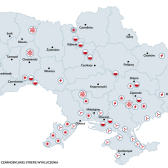
The end of energy resource imports from Russia?

On February 24, Russia started the Ukrainian war. Nothing will be the same again. Russia's brutal attack made the ongoing conflict around energy resources all the more obvious. In 2021 alone Russia could have earned PLN 500 billion (or $120 billion). from the export of energy resources. This revenue funds the Kremlin's military spending. Now we are considering whether giving up Russian fossil fuels is possible. Undoubtedly, this would be a radical solution with far-reaching and not entirely known consequences. If this were to happen, solidarity and close cooperation within the EU would be more important than ever before. In this article, we analyze what options Poland has to break its energy dependence on Russia.
Read More
The end of energy resource imports from Russia?
On February 24, Russia started the Ukrainian war. Nothing will be the same again. Russia's brutal attack made the ongoing conflict around energy resources all the more obvious. In 2021 alone Russia could have earned PLN 500 billion (or $120 billion). from the export of energy resources. This revenue funds the Kremlin's military spending. Now we are considering whether giving up Russian fossil fuels is possible. Undoubtedly, this would be a radical solution with far-reaching and not entirely known consequences. If this were to happen, solidarity and close cooperation within the EU would be more important than ever before. In this article, we analyze what options Poland has to break its energy dependence on Russia.

Lack of transformation hikes energy prices, not climate policy
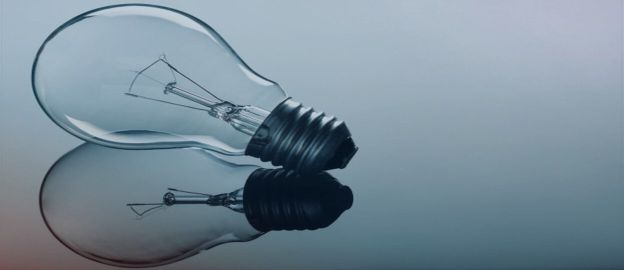
A recent information campaign led by energy companies and echoed by politicians, suggests that CO2 accounts for as much as 60% of the electricity cost. This message creates an impression that the cost of buying allowances amounts to 60 percent of the end users’ electricity bill. But this is not the case. It does a great deal of harm - it distracts attention from the fundamental problems of the Polish energy sector. It distances us from solutions that can effectively stop price increases. In this article - on the basis of adopted assumptions (presented in the annex) we present, among others, what energy prices for households are actually made of.
Read More
Lack of transformation hikes energy prices, not climate policy
A recent information campaign led by energy companies and echoed by politicians, suggests that CO2 accounts for as much as 60% of the electricity cost. This message creates an impression that the cost of buying allowances amounts to 60 percent of the end users’ electricity bill. But this is not the case. It does a great deal of harm - it distracts attention from the fundamental problems of the Polish energy sector. It distances us from solutions that can effectively stop price increases. In this article - on the basis of adopted assumptions (presented in the annex) we present, among others, what energy prices for households are actually made of.
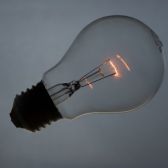
Poland has spent more than a trillion zloty (EUR 220 billion) on fossil fuel imports since 2000
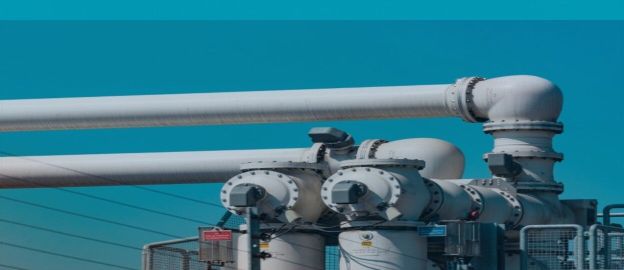
In recent months, rising energy prices have caused panic among policymakers. Gas and coal prices on world markets are at record highs, and crude oil is also becoming more expensive. In addition, Poland has become one of the EU countries most dependent on fossil fuel imports.
Read More
Poland has spent more than a trillion zloty (EUR 220 billion) on fossil fuel imports since 2000
In recent months, rising energy prices have caused panic among policymakers. Gas and coal prices on world markets are at record highs, and crude oil is also becoming more expensive. In addition, Poland has become one of the EU countries most dependent on fossil fuel imports.
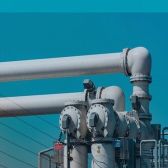
The capacity market in Poland―more expensive than ever

Poland has already held six power auctions. Analysis of their results shows that this mechanism in its current form is not an optimum solution for the country. The capacity market has proved more expensive than anticipated, has failed to curb the increase in electricity prices and, in addition, has contributed to the petrification of the outdated and coal-based generation structure. The arduous task of plugging the coal gap has only just begun, which is why decisions on modernisation and on methods for supporting capacity up to 2030 must be taken urgently.
Read More
The capacity market in Poland―more expensive than ever
Poland has already held six power auctions. Analysis of their results shows that this mechanism in its current form is not an optimum solution for the country. The capacity market has proved more expensive than anticipated, has failed to curb the increase in electricity prices and, in addition, has contributed to the petrification of the outdated and coal-based generation structure. The arduous task of plugging the coal gap has only just begun, which is why decisions on modernisation and on methods for supporting capacity up to 2030 must be taken urgently.
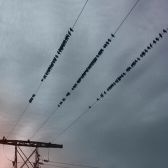
Charge, Set, Go! | Electrifying Urban Transport in Germany and Poland

When more than 40 countries signed the Katowice Partnership for E-Mobility at the 24th session of the Conference of the Parties (COP 24) in Katowice in 2018, it set a milestone for a global approach for the electrification of mobility and the decarbonisation of the transport sector. For Poland and Germany, as the sixth-largest and largest passenger car markets in Europe by sales, it was yetanother confirmation of a lived reality. Dedicated friendship and strong long lasting economic cooperation are characteristic for the relationship of both countries and the motto of the framework, Driving Change Together, reflects their joint ambition for the electrification of the transport sector.
Read More
Charge, Set, Go! | Electrifying Urban Transport in Germany and Poland
When more than 40 countries signed the Katowice Partnership for E-Mobility at the 24th session of the Conference of the Parties (COP 24) in Katowice in 2018, it set a milestone for a global approach for the electrification of mobility and the decarbonisation of the transport sector. For Poland and Germany, as the sixth-largest and largest passenger car markets in Europe by sales, it was yetanother confirmation of a lived reality. Dedicated friendship and strong long lasting economic cooperation are characteristic for the relationship of both countries and the motto of the framework, Driving Change Together, reflects their joint ambition for the electrification of the transport sector.
